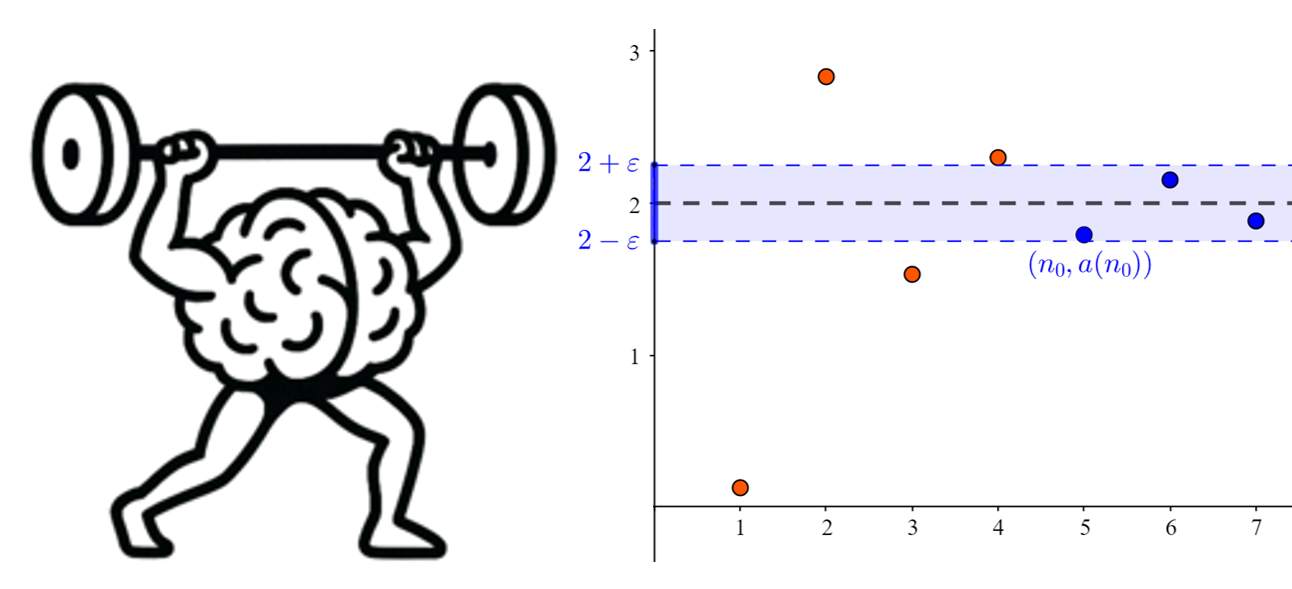In this course, we will first review the geometric (principal bundles, connections, curvature, holonomy) and analytic framework (elliptic operators, infinite dimensional Lie groups) underlying gauge theory. We will then discuss gauge groupoids built from principal bundles and equip them with connections. Gauge groupoids with connections naturally arise in various contexts, among which regularity structures. If time allows, we will discuss their higher simplicial counterparts.
The lectures by Sylvie Paycha (paycha@math.uni-potsdam.de) will take place every other week on Fridays
8:30am-10am in Room 0.17 Building 9
and
1:45pm-3:15pm in Room 0.14 Building 9
starting on Friday October 17th.
An exercise session monitored by Dr. Fabrizio Zanello will take place that same day
3:30pm -5.00 pm in room 1.22 Building 9
Lecture notes will be uploaded weekly on Moodle .
An exam in the form of a 20 minutes presentation on a topic of the lectures or extending those of the lectures, will take place in February, at the end of the semester.
Here are some references (among many!)
Differential geometry
S.Kobayashi, Theory of Connections, Annali di Matematica Pura ed Applicata 43 (1957) 119--194.
S.Kobayashi, K. Nomizu, Foundations of Differential Geometry, Vol.1,2, Wiley Classics Library, 2014 Edition
P.Michor and J.Slovak, Natural operations in differential geometry, available via Peter Michor's homepage at
http:// www.mat.univie.ac.at/~michor/listpubl.html
Ch. Wendl, Lecture Notes on Bundles and Connections (unpublished lecture notes) (2008)
https://www.mathematik.hu-berlin.de/~wendl/connections.html
M. Nakahara, Geometry, Topology and Physics, Graduate Student Series in Physics, IOP (1990)
Gauge theory
Ch. Bär, Gauge theory (lecture notes) 2009,
https://www.math.uni-potsdam.de/fileadmin/user_upload/Prof-Geometrie/ Dokumente/Lehre/ Lehrmaterialien/skript-Eichtheo.pdf
D. Bailin and A. Love, Introduction to gauge field theory, Graduate Student Series in Physics, IOP (1996)
S. Donaldson, Mathematical aspects of gauge theory: Lecture Notes (2017)
A. Handys, Introduction to Gauge Theory, lecture notes for a course given at the PCMI Summer School
"Quantum Field Theory and Manifold Invariants" 2019
N. Straumann, Early History of Gauge Theories and Weak Interactions, talk at the PSI Summer School
on Physics with Neutrinos, Zuoz, Switzerland, 1996
Infinite dimensional manifolds
J. Ells, A setting for global analysis, Bull. Amer. Math. Soc. 72 (1966) 751--807 DOI: https://doi.org/10.1090
A. Kriegl, P. Michor, The Convenient Setting of Global Analysis,Mathematical Surveys and Monographs Volume 53, AMS (1997)
B. Khesin, R. Wendt, The Geometry of Infinite-Dimensional Groups, Ergebnisse der Mathematik und ihrer Grenzgebiete A Series of Modern Surveys in Mathematics (2008) (see en excerpt at
https://beckassets.blob.core.windows.net/product/readingsample/631528/9783540772620${}_{-}$excerpt${} _{-}$001.pdf)
K.-H. Neeb, Infinite-Dimensional Lie Groups. 2005, pp.76 https://cel.archives-ouvertes.fr/cel-00391789
H. Omori, On the group of diffeomorphisms on a compact manifold, Proc. Sympos. Pure Math., vol. 15, Amer. Math. Soc. (1968) 167--183
A. Schmeding, An introduction to infinite-dimensional differential geometry, Cambridge Studies in Advanced Mathematics 2022 A draft of the book is available at https://arxiv.org/abs/2112.08114
Groupoids
A.Kock, Principal bundles, groupoids and connections, in Geometry and topology of manifolds,
Banach Center Publications 76, Institute of Mathematics Polish Academy of Sciences Warsaw (2007)
A.Kumpera, An introduction to Lie groupoids, (2015) https://arxiv.org/abs/1512.01454
E.Meinrencken, Lie groupoids and Lie algebroids, Lecture notes, 2017
{www.math.toronto.edu/mein/teaching/MAT1341_LieGroupoids/Groupoids.pdf
K.Mackenzie, General theory of Lie groupoids and L}ie algebroids, London Mathematical Society Lecture Note Series {213} Cambridge University Press} {(2005)
V. Nistor, Groupoids and the integration of Lie algebroids, Math. Soc. Japan Vol.52, No.4, 2000
Further reading:
N. Berline, E. Geztler, M. Vergne, Heat kernels and Dirac operators, Springer Verlag, Grundlehren der
mathematischen Wissenschaften (1996)
C. Ehresmann, Les connexions infinitésimales dans un espace fibré différentiable, Séminaire N. Bourbaki,
exp. n.24 (1952), 153--168.
P. Gilkey, Invariance theory, the heat equation and the Atiyah-Singer index theorem new edition CRC Press 1994
R. Kadison, J. Ringrose, Fundamentals of the theory of operator algebras, Volume 1., Academic Press 1983
B. Lawson and M. Michelson, Spin geometry, Princeton University Press, Princeton 1989
J. Milnor,Topology from the differentiable viewpoint, Princeton University Press (1997)
J. Milnor, J. Stasheff, Characteristic classes, Princeton University Press 1974
- Kursleiter*in: Sylvie Paycha
- Kursleiter*in: Peter Grabs
- Kursleiter*in: Christoph Stephan
In diesem Kurs werden Begleitmaterialen zur Verfügung gestellt, die Studierenden beim Nachbereiten der Vorlesungen Lineare Algebra I & II (Lehramt - kurz LAILA und LAIILA) unterstützen und anleiten sollen. Sie sind eng verknüpft und verlinkt mit dem Skript zu den beiden Vorlesungen und sind vor allem sinnvoll zusammen mit dem Vorlesungsmaterial der geannten Kurse nutzbar. Der Kurs soll aber auch für alle anderen Interessierten, die optimalerweise mindestens im Besitz der Vorlesungsskripte sind, ofenn stehen.
- Kursleiter*in: Ashik Chandra Das
- Kursleiter*in: Jörg Enders
- Kursleiter*in: Florian Hanisch
- Kursleiter*in: Sophia Zscheischler

Dieser Kurs dient als längerfristig verfügbares Zuhause der tendenziell eher einfacheren Online-Verständnisfragen zu ganz konkreten Resultaten, die in den Skripten der Vorlesungen Analysis I und II (Lehramt) des Instituts für Mathematik kontextgenau direkt neben den jeweiligen Definitionen, Sätzen, Beweisen, Bemerkungen, Beispielen, etc. durch das ![]() -Symbol verlinkt sind und in keiner Form in die Bewertung der zugehörigen Module eingehen. Es handelt sich also hier primär nicht um einen eigenständigen Moodle-Kurs, da das zugehörige Skript sowie tiefergehende bewerteten Online-Übungsaufgaben nicht hier verfügbar gemacht werden. Die (sich weiterhin im Auf- und Umbau befindlichen) Verständnisaufgaben sind teils randomisiert, teils grafisch-interaktiv und teils mit individualisiertem Feedback und primär zur Unterstützung beim selbständigen Nacharbeiten der Vorlesungsinhalte gedacht.
-Symbol verlinkt sind und in keiner Form in die Bewertung der zugehörigen Module eingehen. Es handelt sich also hier primär nicht um einen eigenständigen Moodle-Kurs, da das zugehörige Skript sowie tiefergehende bewerteten Online-Übungsaufgaben nicht hier verfügbar gemacht werden. Die (sich weiterhin im Auf- und Umbau befindlichen) Verständnisaufgaben sind teils randomisiert, teils grafisch-interaktiv und teils mit individualisiertem Feedback und primär zur Unterstützung beim selbständigen Nacharbeiten der Vorlesungsinhalte gedacht.
- Kursleiter*in: Jörg Enders
- Kursleiter*in: Sven Raum
- Kursleiter*in: Sven Raum
- Kursleiter*in: Siegfried Beckus
- Kursleiter*in: Anna Hermsdorf
- Kursleiter*in: Anna Ledwon
- Kursleiter*in: Christoph Stephan

